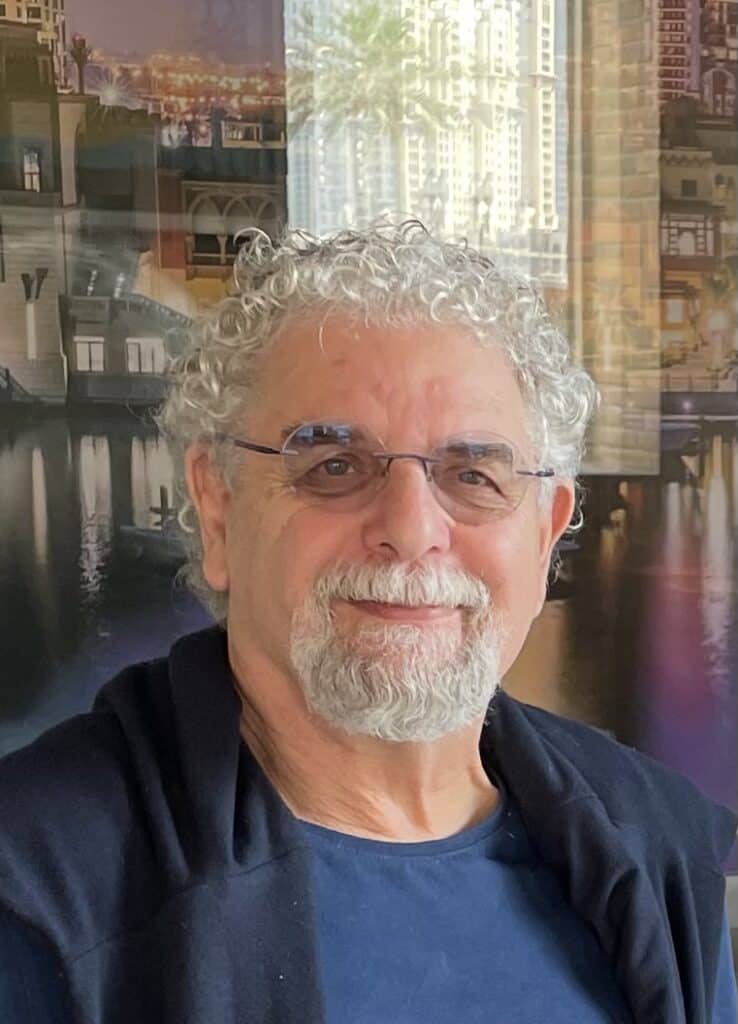
Professor Rajai ‘Ray’ Jureidini teaches Migration, Human Rights, and Ethics at Hamad Bin Khalifa University in Qatar. His notable works include Migrant Labor Recruitment to Qatar and Sociology: Australian Connections.
In recent years (pre-COVID), he has been sharing his knowledge and expertise with participants on DTP’s courses on the rights of migrant workers in the Middle East. These courses, held jointly with Migrant Forum in Asia (MFA), and organised with the ILO and others in Beirut, Qatar, UAE and Kuwait have brought together migrant workers, NGO advocates, government officials and representatives of the private sector from countries of origin in Asia and countries of destination in the Middle East. They respond to one of the most pressing and sensitive human rights issues – the treatment of the many millions of migrant workers who leave their homes in Asia to work on contract in the Middle East, particularly the oil-rich Gulf States.
Ray holds a very high opinion of DTP.
“I remember DTP training programs are well organized, with participation from a good mix of grassroots activists. Participants are always very keen, and the training is well-focused. I enjoyed it because it was very much the thing I was interested in, and I was delighted that I could contribute”.
Ray was born in Beirut to a Lebanese father and a Palestinian mother. He was one and a half years old when his family migrated to Adelaide, Australia. Ray’s interest in migrant rights stems from his experience of growing up as a migrant in Australia.
“I grew up in a very sexist and racist Australia, and we suffered from a lot of discrimination and belittlement. Many slang terms were hurled at us as a foreigners. So, from primary school, I was always aware of being a lower-status foreigner in a minority social group.”
Ray says he became a human rights activist while studying at Flinders University. Later he co-founded the Australian Arabic Council to raise Australian public awareness about racism towards Arabs in Australia. The Council also used to consult the Australian government to form better policies.
“Whenever we thought that there was discrimination occurring and racist ideas and actions taking place, particularly in the media, we would try to intervene if we were not asked to comment. We wrote articles on Arab-Australians to give them a voice, to change awareness and influence policy.”
Ray left Australia in 1999 to teach at the American University of Beirut, where he was surprised to witness Arab racism towards migrant workers there.
“I was very focused on Australia most of the time. Not long after arriving in Beirut, I saw tremendous discrimination against migrant domestic workers from Sri Lanka, Ethiopia and the Philippines (most domestic workers are women and particularly vulnerable to abuse). There were lots of newspaper articles highlighting the abuse. And it dawned on me that in Australia, I had been working on anti-Arab racism, but here in Beirut, I saw Arab racism. And I felt that morally, I couldn’t ignore that. So, I began to research these foreign domestic workers in Lebanon. And I started writing lots of papers about that.”
Ray suggests that in the future DTP should also focus more on involving and training higher-level decision-makers in order to potentially have more impact. “It’s important to target leaders who will ultimately make decisions. Because in the end, the grassroots don’t often have that decision-making power.”
DTP acknowledges the traditional custodians of the land on which we work, the Bedegal people of the Eora Nation. We recognise their lands were never ceded, and we acknowledge their struggles for recognition and rights and pay our respects to the Elders – past, present – and the youth who are working towards a brighter tomorrow. This continent always was and always will be Aboriginal land.
Aboriginal and Torres Strait Islander peoples should be aware that this website contains images or names of people who have passed away.
DTP acknowledges the traditional custodians of the land on which we work, the Bedegal people of the Eora Nation. We recognise their lands were never ceded, and we acknowledge their struggles for recognition and rights and pay our respects to the Elders – past, present – and the youth who are working towards a brighter tomorrow. This continent always was and always will be Aboriginal land.
Aboriginal and Torres Strait Islander peoples should be aware that this website contains images or names of people who have passed away.
Privacy Policy | Terms of Use | Disclaimer | Policies
© 2022 Diplomacy Training Program | ABN 31 003 925 148 | Web Design by Studio Clvr